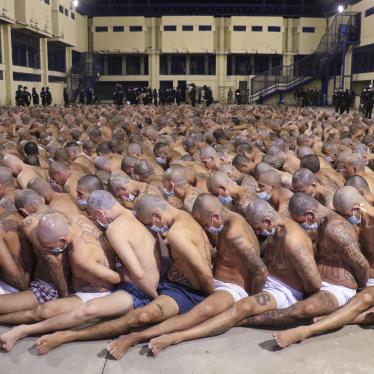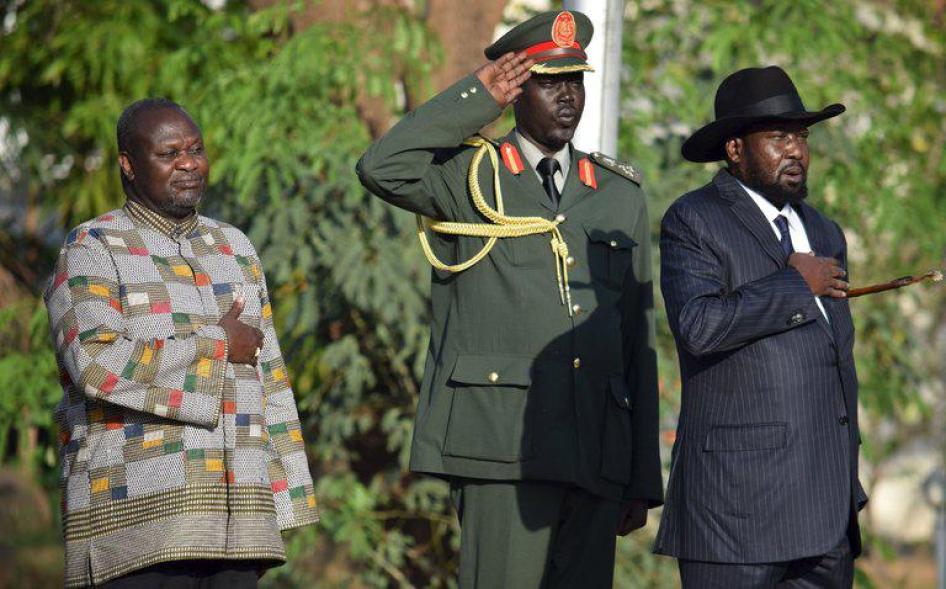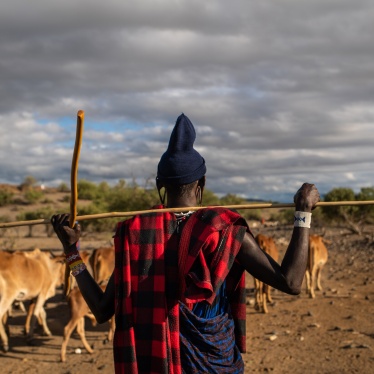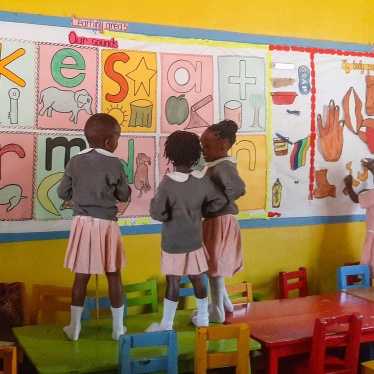When South Sudan’s rebel leader, Riek Machar, was sworn in as first vice president yesterday, after two years of bloody fighting, President Salva Kiir welcomed him into the new national unity government as “a brother.” Kiir then apologized to the international community for their delays in implementing the August 2015 peace deal and to the people of South Sudan for the “situation we leaders have created.”
|
Dispatches
Dispatches: Action, not Words, Needed to End Abuses in South Sudan
Your tax deductible gift can help stop human rights violations and save lives around the world.
Region / Country
Most Viewed
-
December 15, 2024
Sudan: Fighters Rape Women and Girls, Hold Sex Slaves

-
March 20, 2025
Human Rights Watch declaration on prison conditions in El Salvador for the J.G.G. v. Trump case

-
November 8, 2017
“Everyone Blames Me”

-
August 29, 2024
South Korea’s Digital Sex Crime Deepfake Crisis

-
April 29, 2020
El Salvador: Inhumane Prison Lockdown Treatment



